
Ilyas Khan received his training from his father Sakhawat Hussain Khan and additionally received taleem from his father’s Ustad Keramatullah Khan. He initially started on sarod but switched to sitar after he came under the spell of Yusuf Ali Khan and his guru Abdul Ghani Khan of the Kalpi Dhrupad Gharana. When his father Sakhawat Hussain Khan left for his grand tour of Europe in 1934 he asked his friend (who also had his sitar-shop in the same house) Yusuf Ali Khan to look after his sons Ilyas Khan and Umar Khan. After Sakhawat Hussain Khan returned from Europe in 1939 he was shocked to find both his sons playing sitar and ordered his older son Umar Khan to switch back to the hereditary instrument sarod.
An interesting early perspective on a young Ilyas Khan can be obtained from this 1958 article by SK Chaubey: „The late Ustad Sakhawat Khan was a Sarod-player and knew his limitations with regards to the style and technique of the Sitar, of which he was not an expert. He knew about the rare gifts of his friend Yusuf and it was a wise decision when he encouraged and inspired his sons, Umar and Ilyas, to learn from him. Ilyas, the youthful Sitar-player, has had the privilege of sitting at the feet of Ustad Yusuf. The Ustad imparted to him the knowledge of the Sitar although he strays into improvisation made easier by imitation of others. I wish Ilyas good luck. I hope he will be a true disciple of his Guru in more ways than one with the spirit of humility and devotion.“
Ilyas Khan was a phenomenal musician with a huge repertoire of Ragas and compositions. Most of his life he was teaching music at the Bhatkhande College in Lucknow and lived a life devoted to music. His regular broadcasts for All India Radio Lucknow and some of his concerts were recorded by his son Idris and by his nephew Irfan Khan from the early 1980ies onwards. These documents -well preserved over decades by Irfan Khan– form the base of this archive.
„Ilyas Khan was roughly a contemporary of Ravi Shankar, Vilayat Khan and Abdul Halim Jaffer Khan. Yet few listeners today have heard of him, let alone his recorded music. He added to his gharana’s knowledge bank by studying, in addition to his family’s repertoire, more gats and dhrupads from the sitar gharana of Kalpi, near Lucknow. His non-family teachers had been the ustads Abdul Ghani Khan, a dhrupad singer, and Yusuf Ali Khan, a sitarist and sitar maker (also the original designer of the kharaj-pancham sitar that is today synonymous with Ravi Shankar).“ (quoted from Arnab Chakrabarty´s article in scroll.in)
Ilyas Khan trained his son Idris Khan as well as his nephews Shahid and Irfan Khan. His non-family disciples include: Tadahiro Wakabayashi (sitar, Japan), Danny Birch (sarod, USA), Francine Church (sitar, Canada), Rajni Chouhan/Srivastava (sitar, India) and Dr. Joseph.
Our album selection of Ilyas Khans´ early recordings:
The earliest surviving recording of Ilyas Khan: Raga Chayanat from 1956
Raga Kafi from the same concert at the Constitution Club/Delhi in 1956 with Samta Prasad on tabla:


Raga Bhairavi recorded in 1982 with Akbar Hussain aka Ballu Khan on tabla:
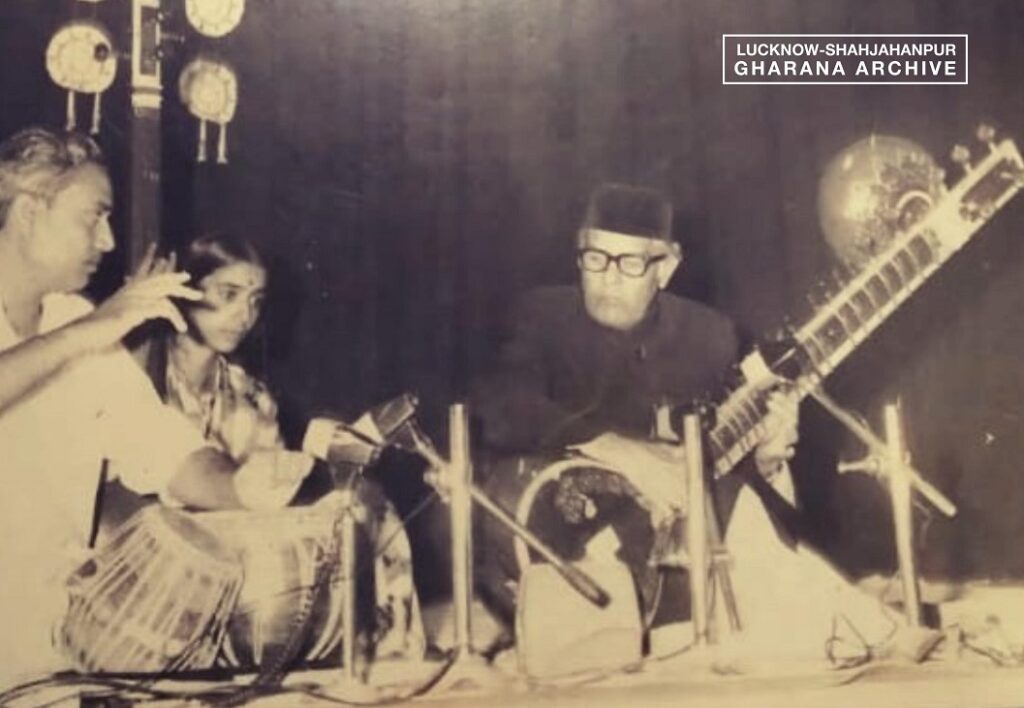
Morning Raga Desi from 1979, Ahmed Miyan on tabla:
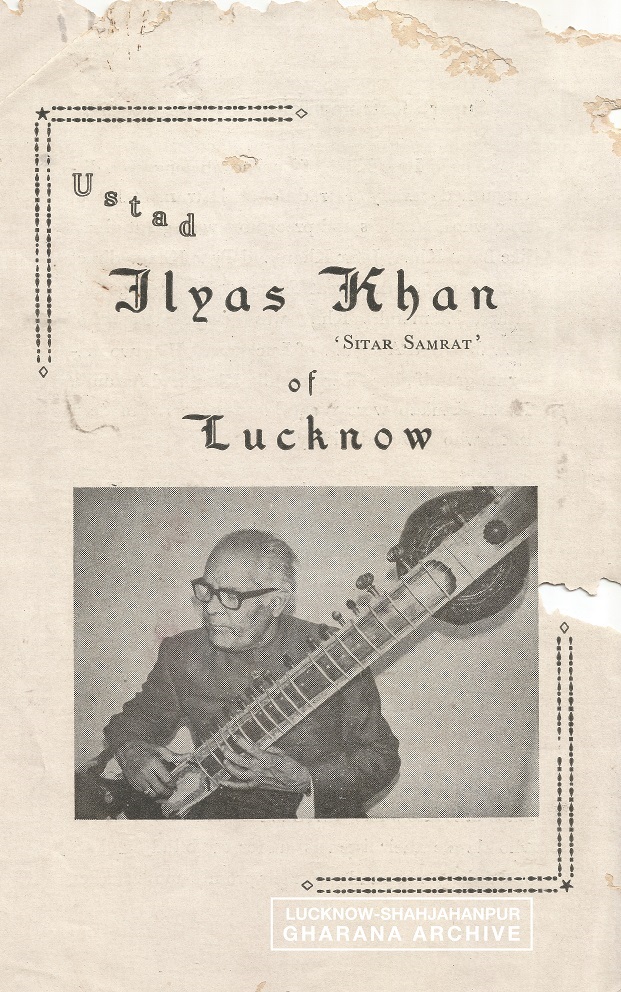
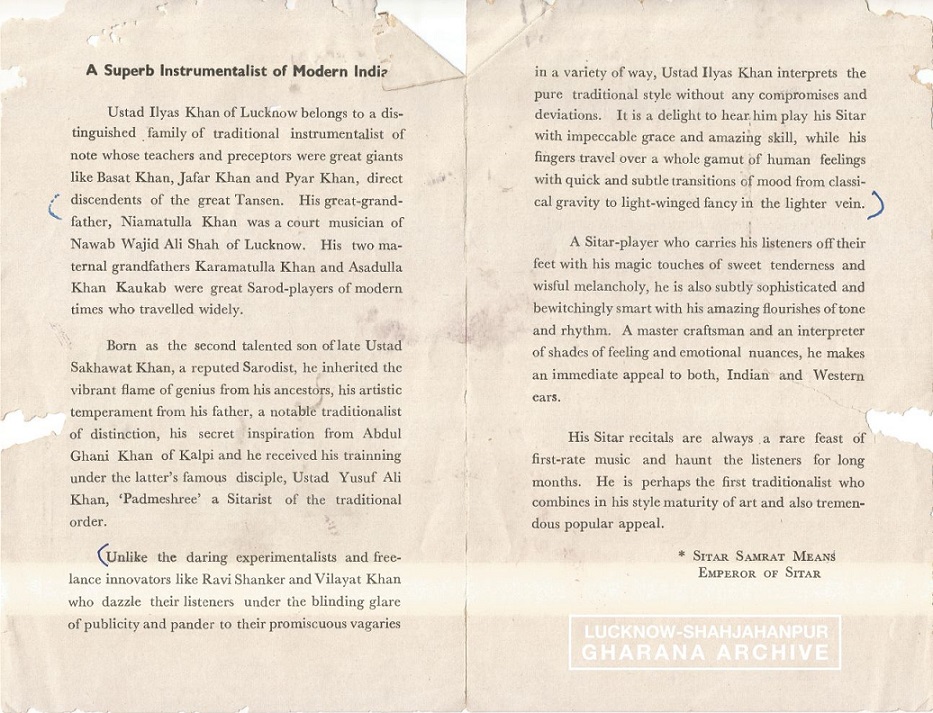

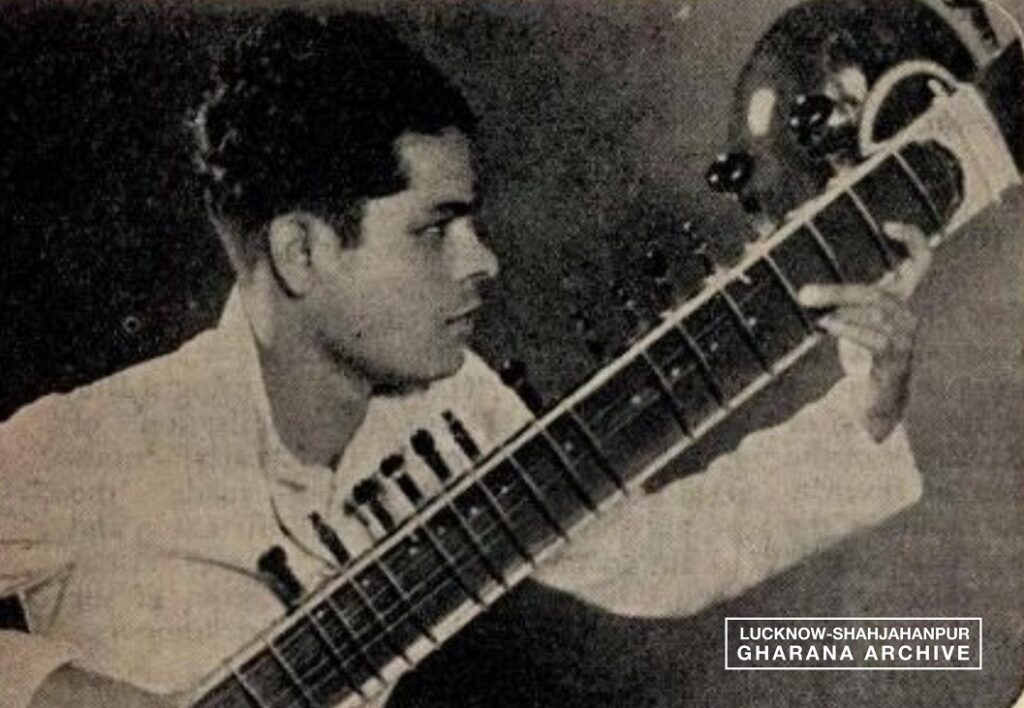
A spool recording of an intense Mehfil from the early 1970ies. Another Raga Chayanat at its best:

Morning Raga Jogiya:
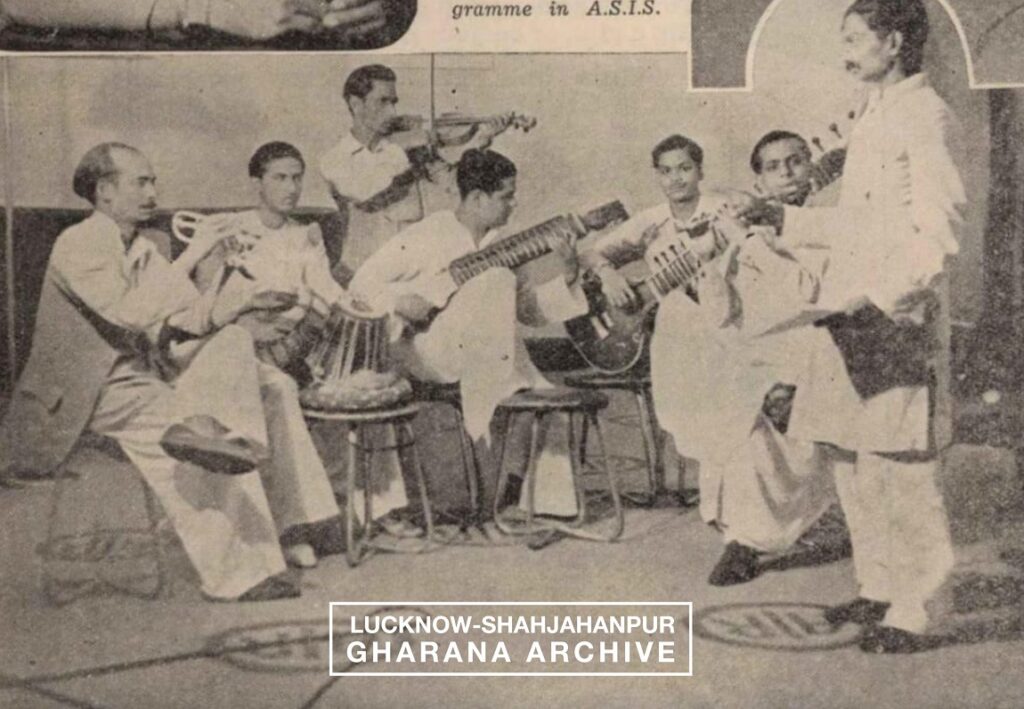
Raga Gaur Sarang with Ballu Khan on tabla:

The longest available alap recording of Ilyas Khan is in Raga Tilak Kamod:

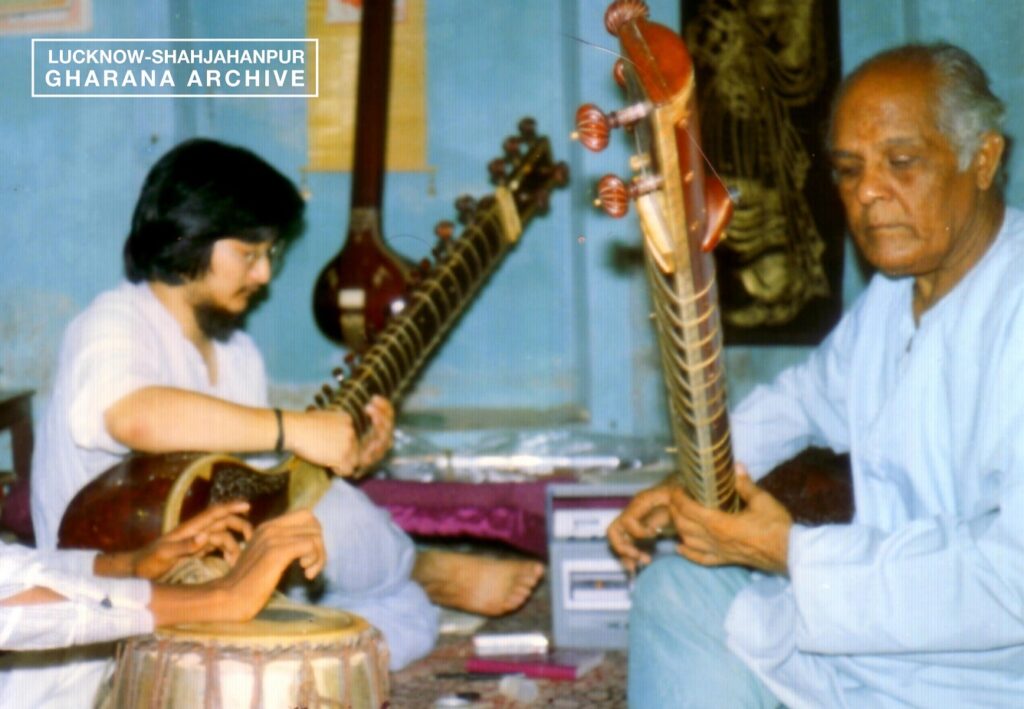
The only surviving footage of Ilyas Khan: a performance in Raag Desh during his last years. Munne Khan on tabla:
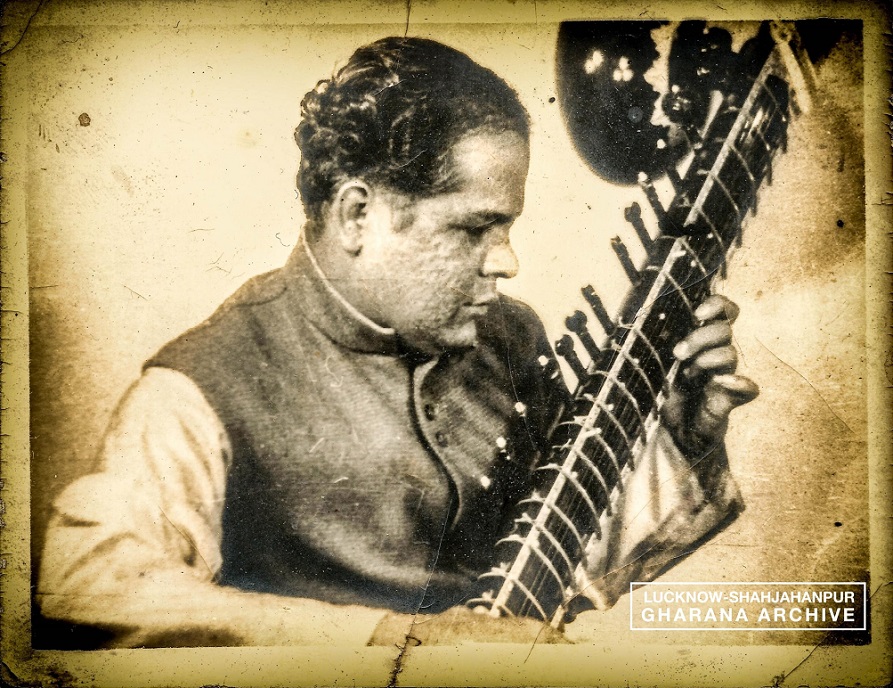
A 1979 recording of the monsoon Raag Sur Malhar with Ahmed Miyan on tabla:
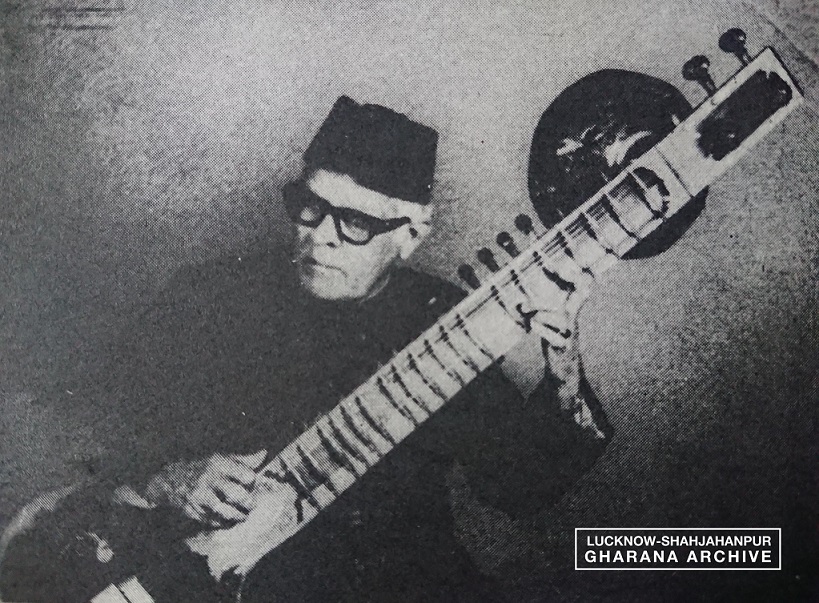
Exquisite morning mood with Gujari Todi from 1981:
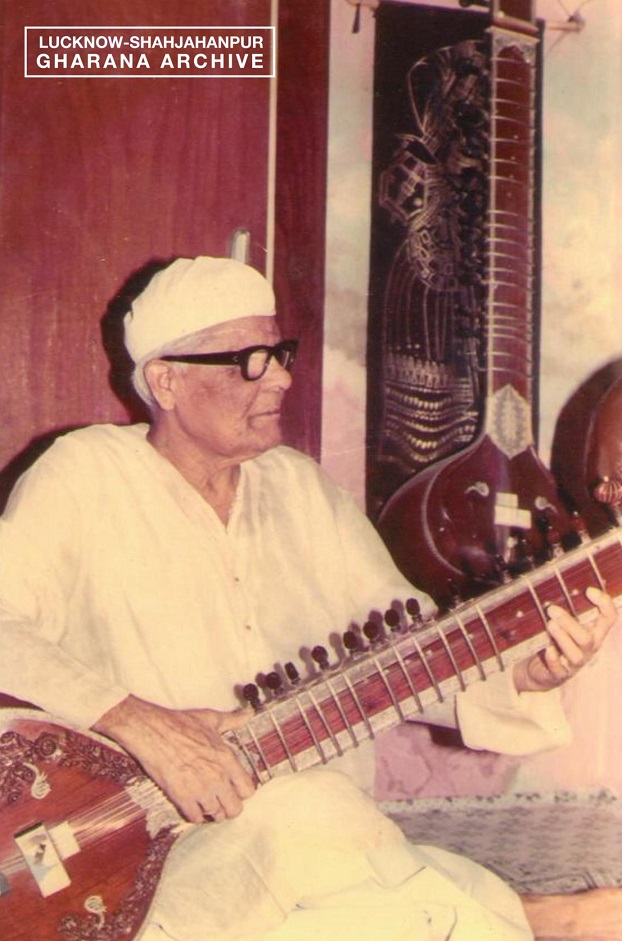
A beautiful Raga Gara. Two recordings of this classic gat played by Ilyas Khans father Sakhawat Hussain Khan are on his page:

One of his very rare early recordings with Shyamal Bose on tabla. Poor sound but rich aesthetics in Raag Alhaiya Bilawal:

Raag Narayani, a rare choice:
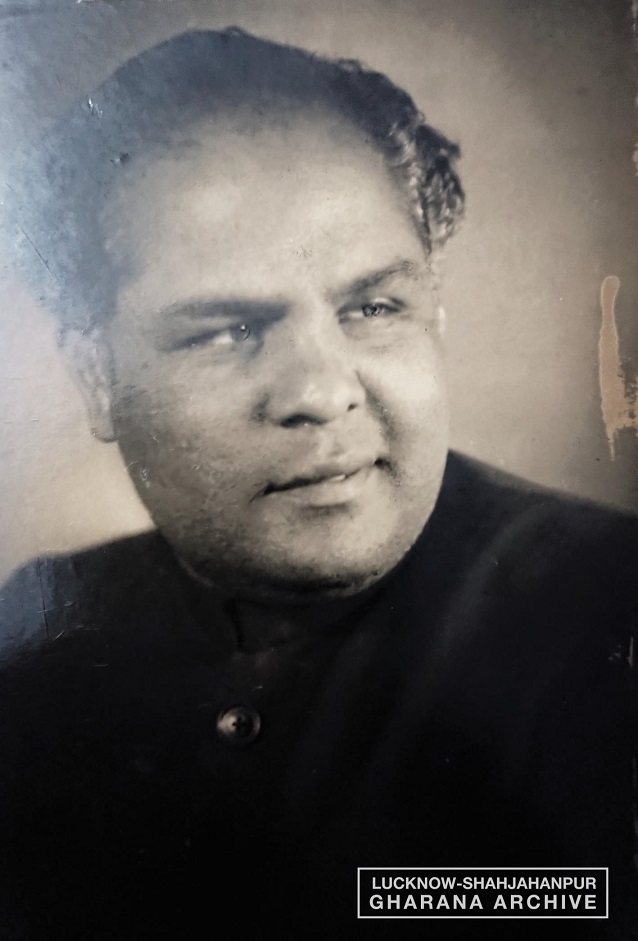
A very short demonstration of his Ustads Yusuf Ali Khans famous gat in Jhinjhoti. Probably recorded for his disciples:

A strong Raga Barwa from 1980:

In 2020 i contacted Miss Church and was happy to converse with her via e-mail. I quote her answers to some of my questions here: „I began learning from Ustad Ilyas Khan in 1968. I started first with “Mamu“ (Shafiqullah Khan), who seemed to be living with the family at the time. He was a very patient and dignified teacher, but didn’t speak any English. A month or so later, Ustad Ilyas Khan began teaching me because he knew some English. When we arrived in 1968, I had a Commonwealth Scholarship to study for a Master’s degree at Lucknow University and was hoping I could take sitar lessons in my spare time. But I soon realized that studying sitar with Ustadji was a once in a lifetime opportunity and a full-time endeavour. So eventually I was able to have my scholarship transferred from Lucknow University to Bhatkande College. This meant I was able to have a private lesson in the morning and a classroom lesson in the afternoon. I returned to North America at the beginning of 1970. In 1974-75 Rod and I returned to Lucknow and I was able to resume my daily lessons with Ustad Ilyas Khan for another 8-9 months. Since then, I haven’t been back to India. From 1970 to about 1978 I was teaching (and performing occasionally). During my time in Lucknow, I wasn’t aware of any recordings except the ones played on A.I.R. When I returned to Lucknow in 1974, I think I had a cassette recorder and did record some shorter examples of Ustadji’s impromptu sitar playing at his house. But I don’t have them now. If Shafiqullah is “Mamu”, we did have a good “slide” photo of him playing sitar – but we haven’t been able to find it. I will definitely let you know if it does turn up.“
A rare Raag, played masterfully:

Morning Raag Ramkali with Munne Khan on tabla:

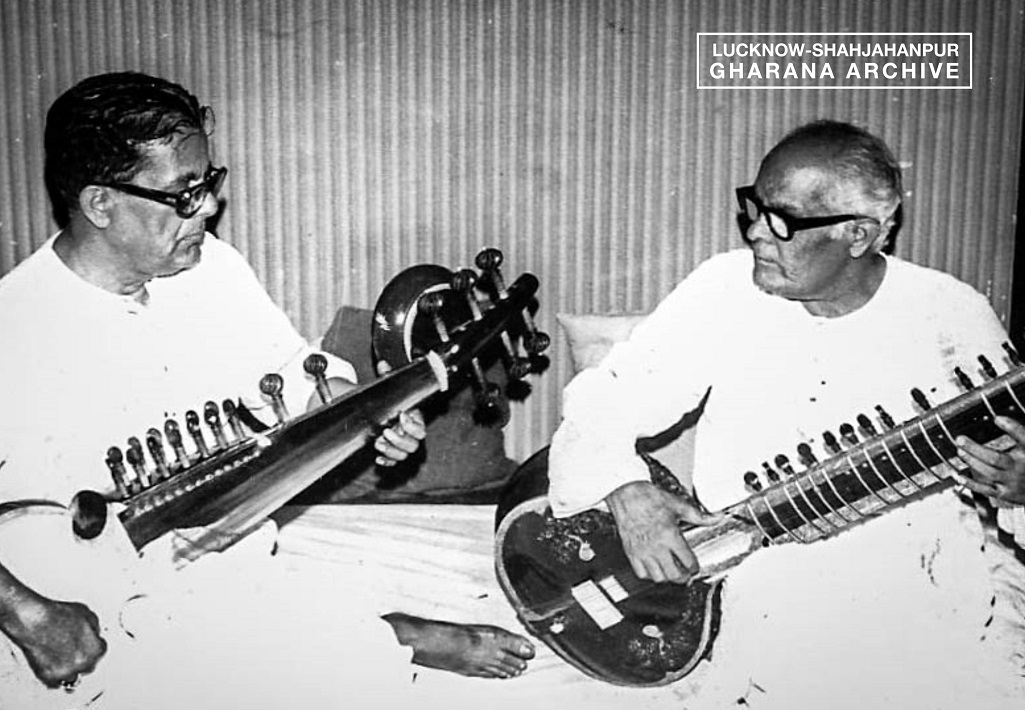
Raga Bageshree from 1982; Akbar Hussain „Ballu“ Khan on tabla:

An exceptional recital in Raag Brindabani Sarang. Note how he reaches up to the highermost Sa in several stages of this recording. Tabla is played by AIR Lucknows staff artist Ram Dhrube:
Enjoy this 1981 recording of the afternoon Raag Suha with Munne Khan on tabla:
Another 1981 recording with Lucknow´s enigmatic Munne Khan on tabla. A very ethereal Raag Bihag:
Here is a gorgeous short recording in Raag Gaud Malhar from 1983. Tabla accompaniment by legendary Afaque Hussain Khan:
Two pearls from Lucknow in one gorgeous recital of Raag Lalit:
An informal home recital in Raag Purbi. Recorded by his disciple and nephew Ustad Irfan Khan:
Another fantastic recital with the khalifa of Lucknow tabla-gharana Ustad Afaque Hussain Khan on tabla:

